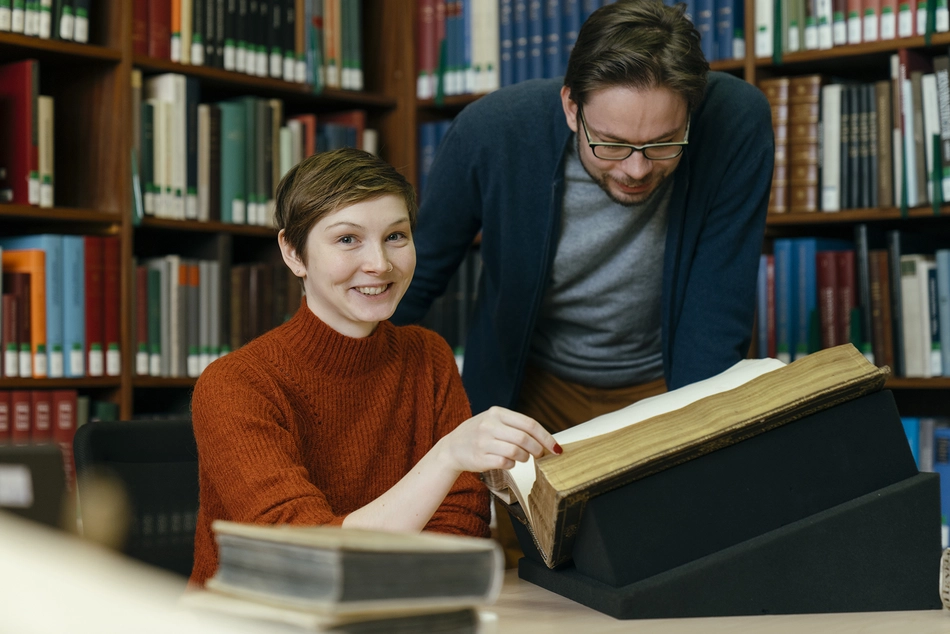Global Intellectual History deals with transnational and, above all, transcultural connections of bodies of knowledge. However, questions about global interconnections and transfers pose a special challenge to researchers, because no one can have all the language skills and competencies required for the work and at the same time have expertise for Europe and China, for Africa and South America, or for Islam and Hinduism.
This is where the research tandems come in: In each case, two researchers whose expertise complements each other in terms of a research question are called upon to submit an application with a joint synopsis, e.g. a Sinologist and a specialist for 18th century Europe, an Islamic scholar and a Renaissance researcher, or an Africanist and a Latin American expert. In this way, questions are to be dealt with that make far-reaching transmissions or interconnections visible. The work with the treasure trove of sources stored in Gotha is to serve as a basis for the joint preparation of a publication or a further proposal.
It is a unique selling point of Gotha to offer three things in one place: 1. one of the largest German early modern libraries, 2. an early modern residential palace with extensive object and art collections from all over the world and 3. a university research center with competences in the history of ideas, culture and knowledge. This offers not only the possibility of competently supervised research, but also the combination of different types of sources: written sources such as manuscripts and old prints can be linked at the original place of collection - and thus in the historical context of the collection - with objects from the ducal Arts- und Natural-History-Specimens-Chamber, the ethnological collection, the Gotha Perthes Map Collection, the Picture Gallery, the Chinese Cabinet, and so on. This creates considerable added value in the analysis and a far greater significance of the findings obtained in the synopsis.
The new fellowship programme is intended to create synergies between subject- and language-bound bodies of knowledge and, in particular, to help bring expertise from the global south and so-called small subjects into research projects at the Gotha Research Centre. In this way, established narratives in early modern research can be broken up and European perspectives decentered.

